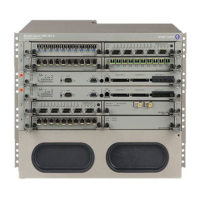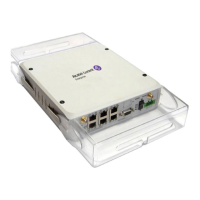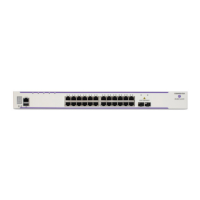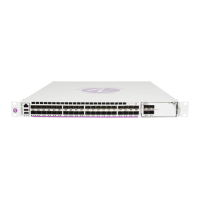Enhanced Subscriber Management (ESM) Accounting
Page 146 7750 SR RADIUS Attributes Reference Guide
30 Called-Station-Id Allows the NAS to send in an Access Request and/or Accounting Request
information with respect to the user called. Attribute is omitted in
authentication/accounting via: configure subscriber-mgmt authentication-
policy/radius-accounting-policy <name> include-radius-attribute no
called-station-id.
Supported applications:
• LNS: The content is the string passed in the [21] Called Number AVP of
the L2TP ICRQ message.
• WLAN Gateway: Reflects the currently learned AP-MAC and SSID.
These can be learned via EAP, DHCP (opt82), DHCPv6 LDRA
(interface-id) or arp-over-GRE.
31 Calling-Station-Id Allows the NAS to send unique information identifying the user who
requested the service. This format is driven by configuration (configure
subscriber-mgmt authentication-policy/radius-accounting-policy <name>
include-radius-attribute calling-station-id <llid|mac|remote-id|sap-id|sap-
string>). The LLID (logical link identifier) is the mapping from a physical to
logical identification of a subscriber line and supplied by a RADIUS llid-
server. The sap-string maps to configure service <service-id> subscriber-
interface <ip-int-name> group-interface <ip-int-name> sap <sap-id>
calling-station-id <sap-string>. A [31] Calling-Station-Id attribute value
longer than the allowed maximum is treated as a setup failure. The attribute is
omitted in authentication/accounting via configure subscriber-mgmt
authentication-policy/radius-accounting-policy <name> include-radius-
attribute no calling-station-id.
For DSM the Calling-Station-Id is always equal to the remote-id if present and
the UE MAC address otherwise.
32 NAS-Identifier A string (configure system name <system-name>) identifying the NAS
originating the Authentication or Accounting requests and sent when nas-
identifier is included for the corresponding application: configure
subscriber-mgmt authentication-policy (ESM authentication), configure
subscriber-mgmt radius-accounting-policy (ESM accounting), configure
aaa isa-radius-policy (LSN accounting, WLAN-GW) and configure aaa
l2tp-accounting-policy
(L2TP accounting).
40 Acct-Status-Type Indicates whether this Accounting-Request marks the beginning of the user
service (Start) or the end (Stop) or reports interim updates.
41 Acct-Delay-Time Indicates how many seconds the client has been trying to send this accounting
record for. In initial accounting messages this attribute is included with value
0 for ESM and omitted for DSM. Attribute is omitted in accounting via
configure subscriber-mgmt radius-accounting-policy <name> include-
radius-attribute no acct-delay-time.
Table 52: Enhanced Subscriber Management Accounting (description) (Continued)
Attribute ID Attribute Name Description

